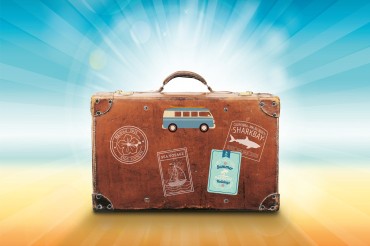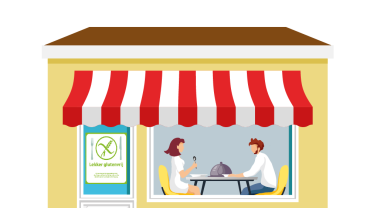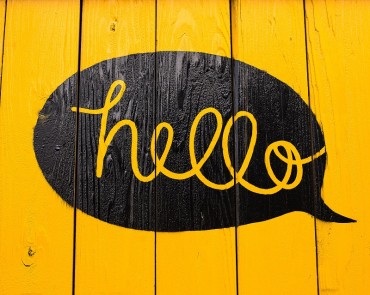1 Become member of the NCV
As a member you will have access to the most recent and reliable information via Glutenvrij Magazine and our websites ncv.nl and glutenvrij.nl. In addition, you can benefit from discounts and special offers. Gastroenterologists (gut specialists) advise patients to become member of the Dutch coeliac society (NCV). Some insurers reimburse part of the cost of the NCV membership through supplementary health insurance. It is therefore worthwhile checking this out in your policy. Grandparents, other family members, friends and acquaintances can also become members of the NCV.
Become a member now (in Dutch use Google Translate)
2 Read more about coeliac disease
Coeliac disease is an autoimmune disease that is caused by a reaction to gluten and occurs only in people with a genetic predisposition. Ingesting gluten primarily causes inflammatory reactions in the mucous membrane of the small intestine. But the disease may also manifest itself throughout the body, such as the skin, joints and the brain. The only treatment for coeliac disease is a strict gluten-free diet for life.
Read more about coeliac disease (in Dutch use Google Translate)
Read more about coeliac disease in children and teenagers (in Dutch use Google Translate)
3 Make an appointment with a specialist dietitian
Dietitians specialised in coeliac disease help you adapt to the gluten-free diet. They examine with you the possible deficiencies in your diet and how to make up for these. They also help you in making healthy choices: what you have to look out for in bread, and how to choose gluten-free and wholemeal products. The dietitians can also answer any questions you may have regarding cross contamination in the kitchen, how to share your kitchen with family members who do eat gluten and how to deal with this in social situations.
The dietitian does not have to be a local one, as many dietitians also provide online consultations.
Search here for an NCV dietitian (in Dutch use Google Translate)
4 Find out more about gluten and what does and does not contain gluten
Gluten is a protein found in the grains (Khorasan) wheat, barley, rye and spelt. If someone with coeliac disease eats or drinks something that contains any of these grains, this will lead to an activation of the immune system resulting in certain complaints. These may vary from stomach ache, fatigue, nausea to neurological disorders, anaemia and depression. It is therefore very important that you or your child do not ingest any gluten whatsoever. So which products are suitable in a gluten-free diet and which should be avoided? We have put together a handy overview that clearly shows what you can and cannot eat and with which products you have to be extra careful. It is very important to check food labels carefully! Be aware that gluten can sometimes be founded in non-foods / art and craft materials.
Read more about gluten (in Dutch use Google Translate)
Read more about gluten in non-foods (in Dutch use Google Translate)
Check out the overview of what you can and cannot eat (in Dutch use Google Translate)
5 Learn how to read food labels
Don’t rely on just one gluten-free logo or supermarket. Once you know how to read food labels you can make the right choices in any shop. Ingredients should be clearly stated on the label. But what exactly does it all mean, and how do you know what you should and should not buy? You can at least be sure that products with the Crossed Grain trademark on the label are safe.
Read more about how to read food labels (in Dutch use Google Translate)
6 Have immediate family members also tested for coeliac disease
Coeliac disease is more common in immediate family members of someone with coeliac disease (such as the father, mother or siblings). We therefore advise that they have a blood test for coeliac disease. This enables early identification of coeliac disease before any family member begins to experience (serious) symptoms. A blood test is a simple way of doing this.
Read more about heredity (in Dutch use Google Translate)
7 We are here for you!
The gluten-free diet involves a great many changes, not only for the person(s) with coeliac disease but also for their friends and family. It is only natural that this takes some getting used to. For some this may be quicker than for others. If you are finding it difficult to get accustomed to your new diet or if you continue to feel uncomfortable with it all, contact your doctor or phone the Glutenfree Line. Someone who has personal experience with coeliac disease will be there to listen to you!
If you have any questions about the gluten-free diet, you can contact the NCV dietitian. She is available on Mondays, Tuesdays and Thursdays between 9 a.m. and 12 p.m. on 035-6954003, or you can send an email to dietist@glutenvrij.nl. Don’t forget to mention your membership number.
You can send general questions to info@glutenvrij.nl or phone 035-6954002 (option 3) between 9 a.m. and 4 p.m. from Monday to Thursday.
8 Sign up for the free webinar, which includes the essential tips to kickstart your new gluten-free life
Learn the fundamentals of your (new) gluten-free life. As a member, you can participate for free in this crash course by Laura Kool, dietician of the NCV Dieticians Network.





